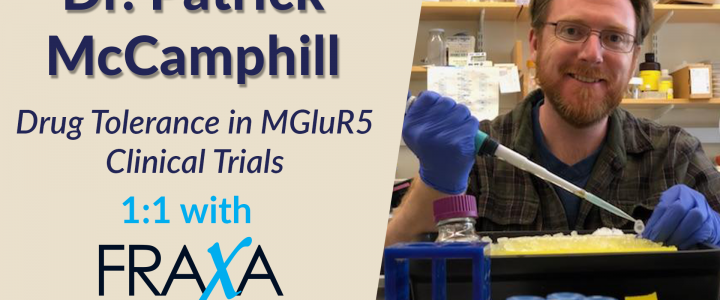We have long suspected that the clinical trials of mGluR5 blockers from Novartis and Roche failed because the drug triggered tolerance, losing effect over time. With a $90,000 grant from FRAXA, Dr. Patrick McCamphill, a Postdoctoral Fellow in the MIT lab of Dr. Mark Bear, is investigating. He does indeed find tolerance, and now he is looking for ways to overcome it.
Read morelithium
Clinical Trials and Cyclic AMP in Fragile X Syndrome: A Life Journey
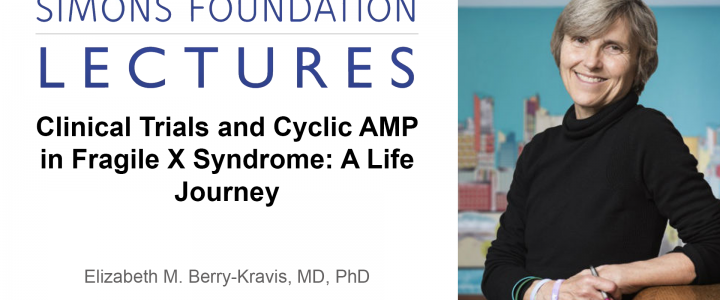
In November 2020, a phase II clinical trial reported extremely successful results. This clinical trial of a PDE4D inhibitor from Tetra Pharmaceuticals was conducted by Dr. Elizabeth Berry-Kravis at Rush University Medical Center and funded by FRAXA Research Foundation. In this Simons Foundation lecture, Elizabeth Berry-Kravis traces 30 years of Fragile X research, from identifying its cause, through finding dozens of treatment targets, through a series of disappointing clinical trials.
Read moreScientists Find a New Way to Reverse Symptoms of Fragile X
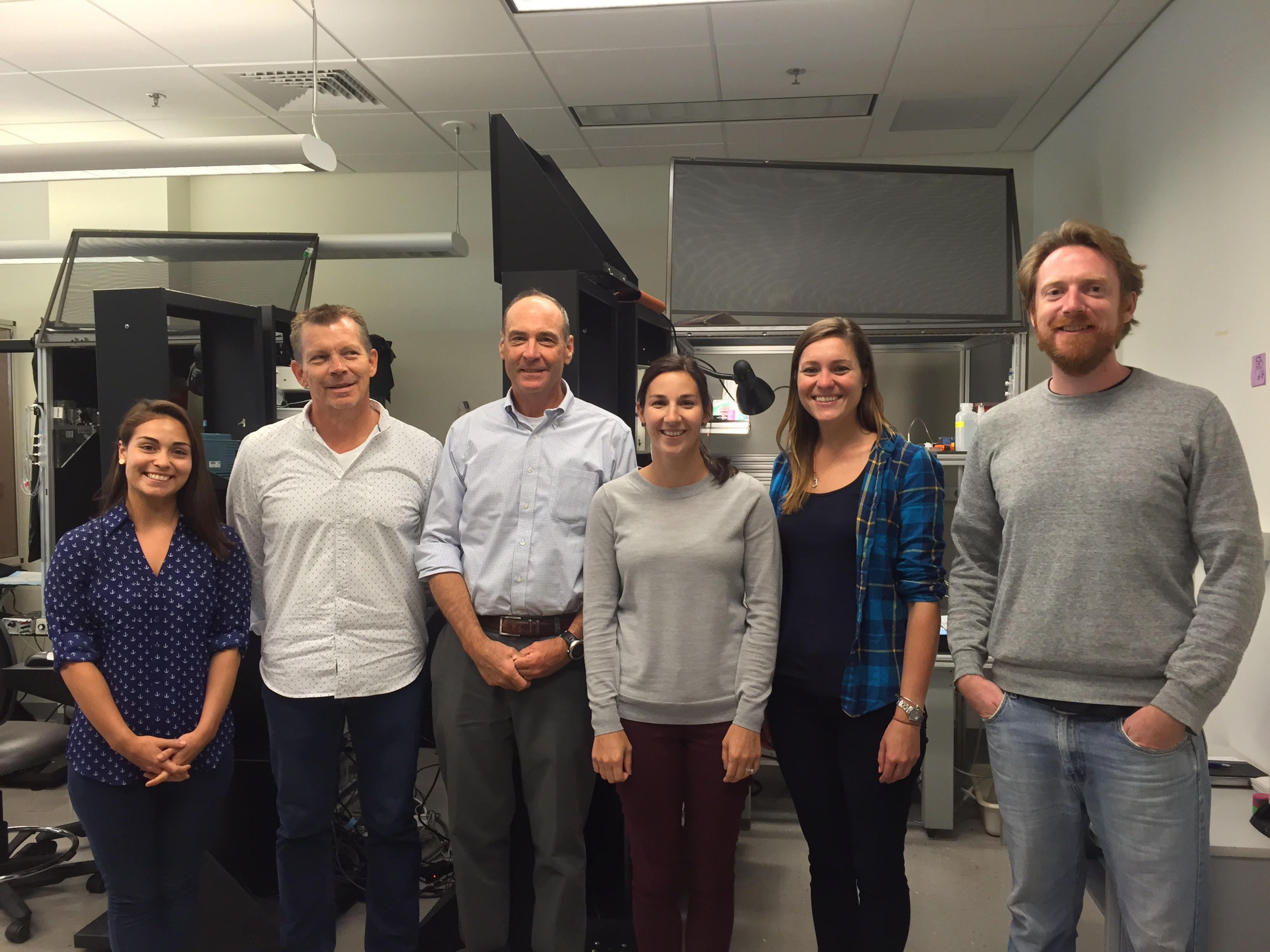
FRAXA Investigator and MIT Professor Mark Bear and his colleagues have identified a valuable new target for Fragile X therapeutics: GSK3 alpha. Several FRAXA research teams previously identified GSK3 beta as a treatment target for Fragile X. The catch is that, so far, GSK3 beta inhibitors have proven too toxic for regular use. Dr. Bear’s new discovery opens up the possibility of developing more selective compounds with less toxicity and fewer side effects. Interestingly, lithium inhibits both GSK3 versions – alpha and beta.
Read moreHealx Raises $56M to use AI to Find Treatments for Fragile X & Other Rare Diseases
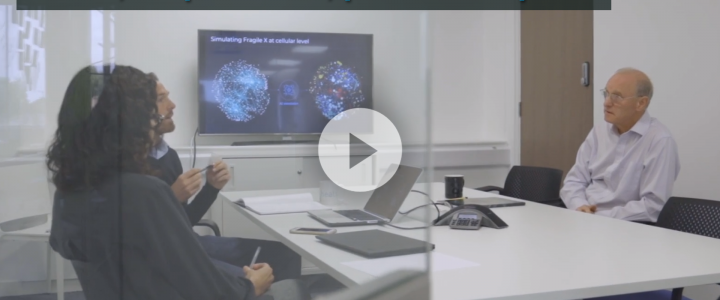
Healx has secured $56M in new financing to build a clinical-stage portfolio for rare diseases, including treatments for Fragile X syndrome, and to launch a global Rare Treatment Accelerator program. Where the traditional drug discovery model takes more than a decade and can run into the billions of dollars, Healx’s AI-driven approach makes the process faster, more efficient and cost-effective.
Read moreScreening 2,320 FDA-Approved Drugs for Potential Treatment of Fragile X
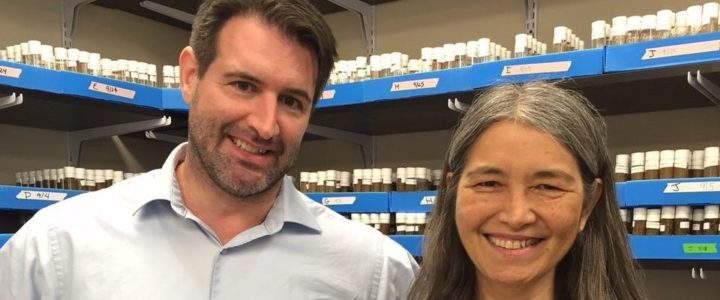
FRAXA Research Foundation has awarded a $90,000 grant to Principal Investigator Dr. Sean McBride and Postdoctoral Fellow Dr. Karen Joyce, at Rowan University, to screen all 2,320 FDA-approved drugs on both mouse and fly models of Fragile X syndrome. Those drugs which show promise will be tested in more detail for potential to treat Fragile X in humans.
Read morePharmacological Tolerance in the Treatment of Fragile X Syndrome
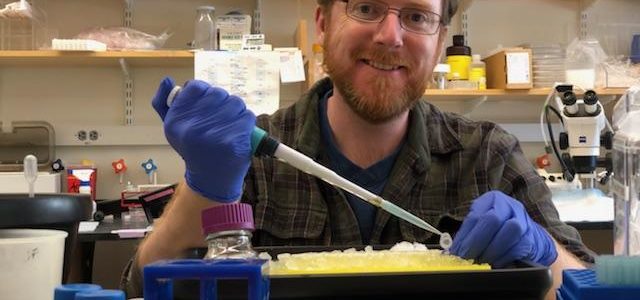
With a $90,000 grant from FRAXA Research Foundation over 2018-2019, Dr. Patrick McCamphill, postdoctoral fellow in Dr. Mark Bear’s lab at Massachusetts Institute of Technology (MIT), is investigating drug tolerance to mGluR5 antagonists, arbaclofen, and other potential Fragile X treatments. He is also exploring ways to overcome it.
Read moreFRAXA Wins Award for Drug Repurposing
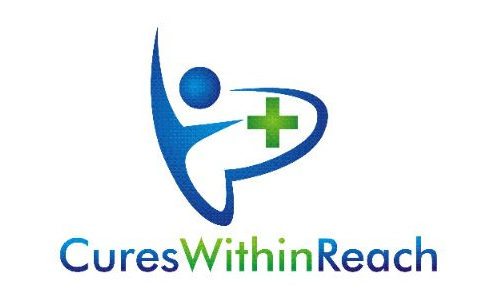
Cures Within Reach, the leading global nonprofit focused on repurposing research as a fast track to saving patient lives, has awarded FRAXA Research Foundation the 2017 Golan Christie Taglia Patient Impact Philanthropy Award for efforts to find treatments for the rare disease Fragile X syndrome.
Read moreRepurposing Available Drugs to Treat Fragile X Syndrome – FRAXA Initiatives
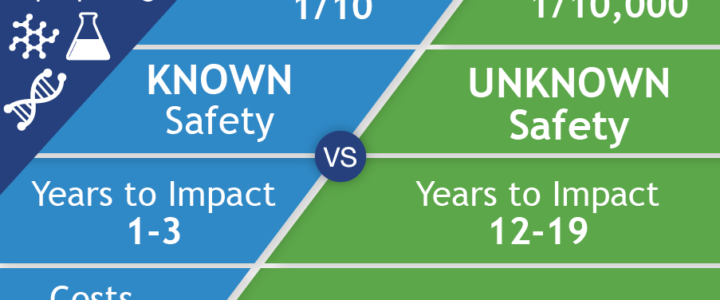
FRAXA Research Foundation was founded in 1994 to fund biomedical research aimed at finding a cure for Fragile X syndrome and, ultimately, autism. We prioritize translational research with the potential to lead to improved treatments for Fragile X in the near term. Our early efforts involved supporting a great deal of basic neuroscience to understand the cause of Fragile X. By 1996, these efforts had already begun to yield results useful for drug repurposing. To date, FRAXA has funded well over $25 million in research, with over $3 million of that for repurposing existing drugs for Fragile X.
Read moreNIH Investigator Carolyn Beebe Smith, PhD, Looks to Improve Sleep in Fragile X Syndrome
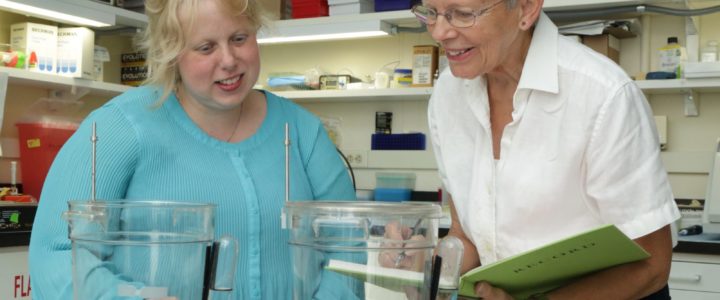
Our sons with Fragile X Syndrome typically go to bed early and rise early. Sometimes they jump on us while we are sleeping at 3 a.m., excited to start their day. For heaven’s sake, why? The answer may come from Carolyn Beebe Smith, PhD, senior investigator, Section on Neuroadaptation and Protein Metabolism, National Institute of Mental Health, National Institutes of Health, Bethesda, Maryland. She is studying why children, in particularly boys, with FXS have problems sleeping.
Read moreFruit Flies to Model and Test Fragile X Treatments
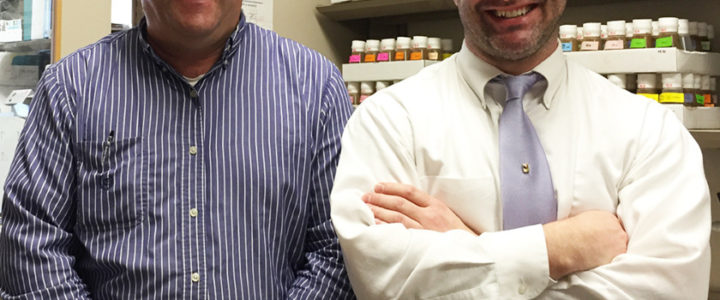
Dr. Jongens and his collaborators have found an insulin-like protein in the fly brain that is overexpressed in the Fragile X mutant fly, leading to increased activity of the insulin signaling pathway. Furthermore, they found that certain behavioral patterns in the Fragile X flies can be rescued by expressing the FX gene just in insulin producing neurons in the fly brain. In the mutant, there are other changes in the signaling pathways, including a decrease in cAMP and elevation in PI3K, mTOR, Akt and ERK activity. They now propose to study 2 medicines used for diabetes: pioglitazone (increases cAMP and decreases Akt and ERK) and metformin (inhibits mTOR), in flies and mice to validate the potential efficacy of these novel therapeutics for Fragile X.
Read moreWhy Did Fragile X Clinical Trials of mGluR Antagonists Fail?

by Michael Tranfaglia, MD. In my opinion, the Fragile X clinical trials of AFQ056 sponsored by Novartis failed because of a dose range that was inadequate for Fragile X, and because of the unexpected development of tolerance.
Read moreMolecular mechanisms: Enzyme blockers help Fragile X mice
Dr. Jope won the 2013 FRAXA Pioneer Award for this work. The mood stabilizer lithium and two other drugs that block an enzyme called GSK-3 reverse cognitive deficits in a mouse model of Fragile X.
Read moreGlycogen Synthase Kinase-3 (GSK3), Lithium and Fragile X

With $208,000 in funds from FRAXA Research Foundation, Dr. Richard Jope and his team at the University of Miami tested whether newly developed, highly specific inhibitors of GSK3 can reduce behavioral abnormalities in Fragile X mice.
Read moreWhat Works, and What Doesn’t
At the start, it’s always hard to know what methods will work best for something as complex as the development of disease-modifying treatments for Fragile X. But, we’ve always tried to let the science lead us down the right path. At this point, the results are unequivocal, and they have shaped how we are looking for the Next Great Thing in Fragile X treatments.
Read moreClinical Trials Outcome Measures

With $281,824 in funding from FRAXA Research Foundation from 2002-2011, Dr. Berry-Kravis at the Rush University Medical Center attempted to validate a new automated video tracking system for quantifying physical activity as an outcome measure for Fragile X clinical trials.
Read morePilot Clinical Trial of Lithium in Fragile X Shows Promising Results

With a $65,000 grant from FRAXA Research Foundation in 2005, Dr. Berry-Kravis at the Rush University Medical Center conducted a pilot clinical trial of lithium in 15 patients with Fragile X syndrome. Results published.
Read moreSmall Molecule Modulators of Lithium for Treatment of Fragile X Syndrome

With a $219,500 grant from FRAXA Research Foundation, Dr. Stephen Haggarty from Havard/MIT developed a high-throughput drug screen to find compounds that inhibit GSK3, a critical enzyme in Fragile X. He looked for compounds that can accomplish this either alone or in combination with lithium, offering the possibility of enhancing the effectiveness of lithium as a treatment. His drug screen used patient-specific neural progenitor (NP) cells derived from human induced pluripotent stem cells (iPSCs) – which are created from cells in a skin biopsy from people with Fragile X syndrome (FXS) and other autism spectrum disorders.
Read moreDeveloping Fragile X Treatments in Fruit Flies and Mice

With a $380,000 grant from FRAXA Research Foundation from 2005-2009, Drs. Sean McBride, Tom Jogens, and Catherine Choi studied one of the most important aspects of FRAXA’s research; the preclinical validation of potential therapeutic strategies. Many labs have found new leads for treatment. However, very few have the capacity to test new drugs in the mouse model to establish efficacy rigorously enough to lead to clinical trials. The McBride lab (in a broad collaboration with the Choi, Jongens, and Skoulakis groups) aims to do just that. Results published.
Read moreSocial Deficits in Fragile X Syndrome: Do Gene-Gene Interactions Play a Role?

With a $100,000 grant from FRAXA Research Foundation from 2005-2006, Drs. Jean Lauder and Sheryl Moy at the University of North Carolina looked for gene-gene interactions in Fragile X syndrome.
Read morePharmacologic Interventions in the Fmr1 KO Mouse

With $48,600 in grants from FRAXA Research Foundation over 2004-2006, Dr. Catherine Choi at Drexel University studied Fragile X knockout mice to determine future treatment targets for Fragile X syndrome in humans.
Read more
